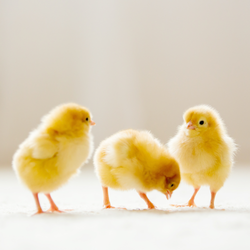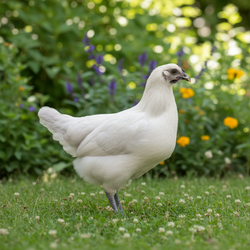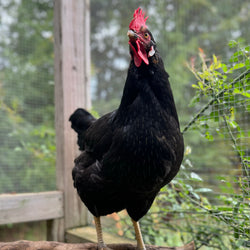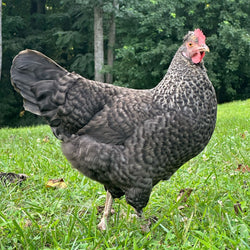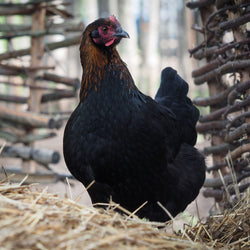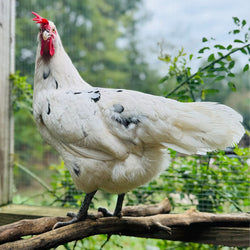page=51/--
Frequently Asked Questions
Here we answer the most commonly-asked questions about ordering, chicken care, and more.
Chicken illnesses with respiratory symptoms (overview)
When your chicken is showing respiratory symptoms, there are a number of chicken illnesses that could be causing the problem. We know how worrisome it can be when a pet chicken is sick! Respiratory symptoms in chickens can present as wheezing/whistling/rattling breath, watery or bubbly eyes, gasping, sneezing, blocked nares/nostrils, coughing, panting, head shaking (to try to clear the nares/nostrils), swollen face/eyes (indicating some swelling in the sinus passages), coughing blood, choking, and darkened comb/wattles (from not enough air). We've included here a quick overview of the most common chicken illnesses that cause respiratory symptoms, but understand that each illness...
Read MoreWhat is the best location for a chicken coop? Top 10 Tips
There are many considerations to take into account when determining the best location for a chicken coop. Here are 10 tips that can help you find just the right spot: 1. Keep Your Coop Close to Your Home. If your coop is far away from your house, it's easy to lose interest in caring for your birds on a daily basis. There's no need to make chores more difficult! Therefore, position your coop close enough to the house for easy egg collection and daily care tasks. Yet far enough to keep any smells or flies away from the home. Also,...
Read MoreAll about Avian Influenza (AI)
The idea of "Bird Flu" (Avian Influenza), also known as AI, or Avian Flu, may strike fear in the minds of chicken keepers because of past outbreaks. When fear is involved, it is difficult to think rationally, so it's a good idea to get informed! Knowledge is power, right? The Centers for Disease Control remind us that "No animal or human infections with Asian H5N1 virus have occurred in the United States," and the USDA reminds us that in the United States, the 2022 strain of Eurasian H5 Avian Influenza has not infected any human. The major concern for backyard...
Read MoreWhat are mule ducks?
A "mule" duck is a sterile hybrid cross between a Muscovy and a Pekin. Because these two breeds have been genetically isolated for 50 million years, when you breed the two, you get some interesting results. Why cross these two breeds? We're glad you asked! In Europe and in Asia many mule ducks are produced because of their large size, quality liver, and reduced meat fat content. In fact, artificial insemination was developed in ducks because of the desire to produce mule ducks. If left to mate naturally, the fertility rate between Muscovies and Pekins is only 20-30%, but artificial...
Read MoreIs the floor surface important with ducks and geese?
Yes!--it is very important. As babies, ducklings and goslings need a surface they can grip until their leg muscles and hips are strong, just as with baby chicks. If the floor surface is too slippery, they can develop spraddle leg, a condition in which their hip muscles have not developed properly and they are not able to stand. To reduce the risk of spraddle leg, you will want to avoid slick flooring in incubator trays, transport carriers, and brooders. Also, do not use newspaper or cardboard flooring for the first week of their lives. The best bedding is wood shavings,...
Read MoreAt what age do ducks and geese start laying eggs?
Assuming that they have had proper care, lighter-weight duck breeds mature sexually at 17-24 weeks of age and begin laying eggs at that time. Heavier duck breeds usually start laying between 20-30 weeks of age. However, if they reach maturity during winter--just like chickens--ducks may delay laying until the days begin to lengthen and it warms up in the spring. Just before and during production, ducks may exhibit swollen abdomens, large, moist vents, and widely-spread pubic bones. In some breeds, you may see a darkening in feather color, and in others, the bill color may lighten. Normally, geese start laying...
Read MoreHow do you pick up a duck?
Ducks are particularly prone to injuries to their legs and wings, so whenever you attempt to pick one up, make sure that you move deliberately and slowly, preferably not over rocky terrain. Ideally, you can slowly back them into a corner in their run area. If you have to, you can gently stop them using their necks as a "catching handle"--without squeezing--and once you've slowed them down, use one of these techniques: Lightweight and Bantam Ducks - Hook the base of their wings together behind their back with your thumb holding one wing and fingers holding the other. Then place...
Read MoreHow can I have a successful classroom hatching project?
Hatching eggs at school can be a rewarding and enlightening school project! In fact, the founder of My Pet Chicken was first charmed by chickens during a hatching project in grade school. After that project, she was a changed person! In her eight-year-old heart, she knew for a fact that she would keep chickens herself and help others adopt chickens when she grew up. And now, years later, you can see from our website how that turned out! So, at My Pet Chicken, we have a definite soft spot for schools who want to organize hatching projects. That said, though,...
Read More







"The Clubhouse" Coop
Easy to assemble and built to last, the Clubhouse Coop is the perfect starter coop for a small flock.

